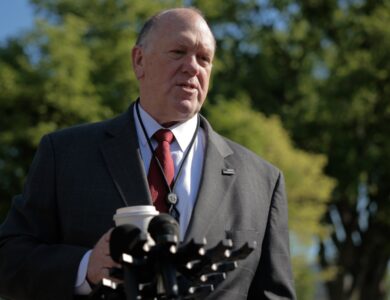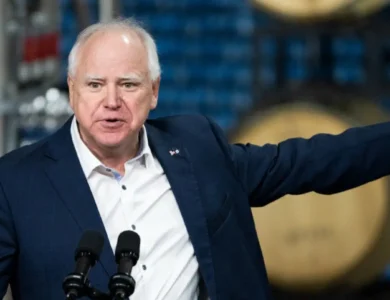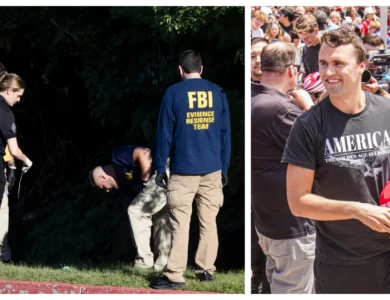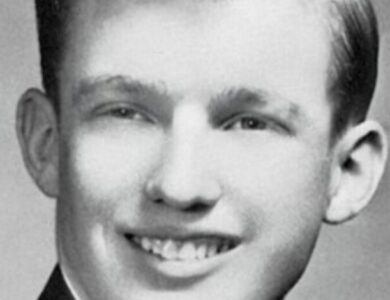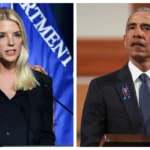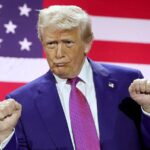Trump Provides Details After U.S. Strike On Venezuelan Cartel Boat
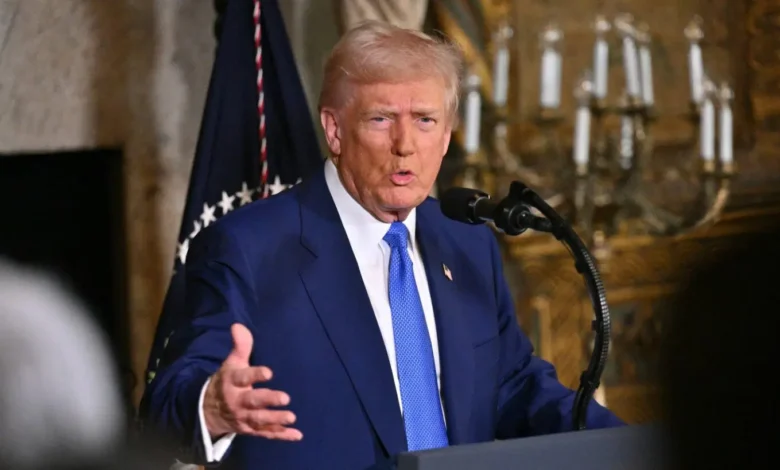
President Donald Trump announced Tuesday that the United States carried out a military strike on a speedboat carrying narcotics, killing 11 members of Venezuela’s Tren de Aragua cartel in what officials called a major escalation in the war on drugs.
The strike marked the first lethal operation against cartel traffickers at sea, signaling a shift in how the United States intends to confront narcotics networks, the New York Times reported.
During a White House press conference, Trump gave few details but later released a statement on Truth Social.
“Earlier this morning, on my Orders, U.S. Military Forces conducted a kinetic strike against positively identified Tren de Aragua Narcoterrorists in the SOUTHCOM area of responsibility,” Trump wrote.
“TDA is a designated Foreign Terrorist Organization, operating under the control of Nicolas Maduro, responsible for mass murder, drug trafficking, sex trafficking, and acts of violence and terror across the United States and Western Hemisphere.”
“The strike occurred while the terrorists were at sea in International waters transporting illegal narcotics, heading to the United States. The strike resulted in 11 terrorists killed in action. No U.S. Forces were harmed in this strike. Please let this serve as notice to anybody even thinking about bringing drugs into the United States of America. BEWARE!”
Trump’s post included a video showing a speedboat racing across the water before an explosion destroyed it.
A senior U.S. official confirmed that either a Special Operations helicopter or an MQ-9 Reaper drone carried out the strike. The target had been under surveillance for weeks. A second official confirmed that additional strikes are planned.
In the past, U.S. missions focused on interdictions, seizures, and criminal cases.
Tuesday’s strike represented a sharp break from those tactics, using direct military force instead.
“The president is very clear that he’s going to use the full power of America, the full might of the United States, to take on and eradicate these drug cartels, no matter where they’re operating from, and no matter how long they’ve been able to act with impunity,” Secretary of State Marco Rubio said before departing Florida for Mexico.
Rubio, however, suggested the boat was likely bound for Trinidad or another Caribbean nation rather than the United States.
The strike followed a military buildup in the southern Caribbean after Trump signed a directive in July authorizing the Pentagon to use force against Latin American cartels designated as terrorist organizations.
Around the same time, the administration declared Tren de Aragua a foreign terrorist group and accused Venezuelan President Nicolás Maduro of leading it.
U.S. Navy warships have since moved into the region.
In response, Maduro deployed millions of militia members and vowed to defend his country “from any incursions.”
He accused Washington of creating a false narrative to justify intervention.
On Monday, he warned he would “constitutionally declare a republic in arms” if U.S. forces attacked Venezuela.
Named for the sun insignia worn by Venezuelan generals, the cartel was first linked to Hugo Chávez.
For decades, prosecutors said, it worked with Colombia’s FARC guerrillas to move tons of cocaine from Venezuela to the United States, both for profit and to harm American communities.
Former Venezuelan intelligence chief Hugo Carvajal pleaded guilty to narco-terrorism conspiracy in June. Charges remain pending against Maduro and other senior figures, including Diosdado Cabello.
On Tuesday, Trump pointed to the strike as proof of his resolve to stop narcotics before they reach U.S. shores.
“When you leave the room, you’ll see that we just, over the last few minutes, literally, shot a boat — a drug-carrying boat,” Trump told reporters.
He added that the vessel had “a lot of drugs” on board.
For the administration, the strike was both a tactical success and a warning to cartels across the hemisphere. And for Trump, it was a vivid demonstration of his pledge to confront what he calls “narco-terrorists” with the full power of the U.S. military.
